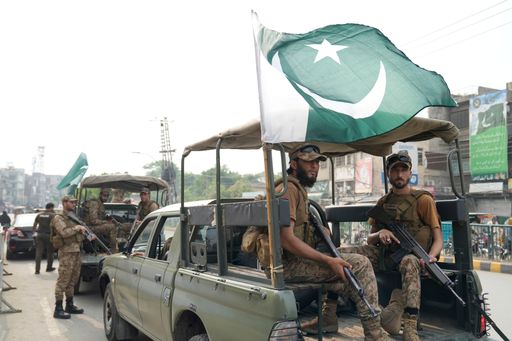A 48-hour ceasefire between Pakistan and Afghanistan is holding, with no new reports of skirmishes, following cross-border clashes between the Pakistani military and Afghan Taliban fighters that resulted in the deaths of dozens of combatants and civilians.
The ceasefire came as Amir Khan Muttaqi, the top diplomat of the Afghan interim administration, concluded his six-day tour to India and returned to Kabul.
The truce began at 6:00 pm Islamabad time (1300 GMT), shortly after being announced by both countries, with Islamabad asserting that Kabul had requested it to end the surge in violence.
According to Pakistan, the ceasefire was expected to last 48 hours.
“During this period, both sides will sincerely strive to find a positive solution to this complex but resolvable issue through constructive dialogue,” the Pakistani Ministry of Foreign Affairs said.
In Kabul, Afghanistan’s interim government said it had ordered the Afghan army to respect the truce, “unless it is violated” by the opposing side, a spokesman said on X.
Khawaja Asif, Pakistan’s Defence Minister, however, doubted the ceasefire, claiming the Afghan Taliban are now “a proxy of India.”
“I have my doubts that the ceasefire will hold, because the [Afghan] Taliban are being sponsored by Delhi,” he added. “Right now, Kabul is fighting a proxy war for Delhi.”
Asif warned Afghan Taliban against widening “the radius of this war”, adding, “There have been deep strikes in Afghanistan, and a ceasefire was agreed on after the intervention of friendly countries, but it is fragile. I don’t believe this will last long.”
The temporary ceasefire followed a week of violence between the two South Asian neighbours.
The Taliban had launched attacks along parts of its southern border with Pakistan, prompting Islamabad to vow a strong response of its own. Islamabad has accused Afghanistan of harbouring terror groups led by the Pakistani Taliban (TTP) on its soil.
The Afghan interim administration, in recent statements, mentioned police firing in Pakistan while Kabul referred to the disputed region of Kashmir as part of India in a joint statement with New Delhi. However, it has rarely condemned the TTP for attacking Pakistani civilians and military personnel and continues to deny supporting the terror group.
Pakistan uses the term “India-sponsored Fitna-al-Khawarij” for TTP terrorists while “Fitna-al-Hindustan” is a term designated for terrorist organisations targeting Balochistan province.
According to Pakistani military officials, more than 500 people, including 311 soldiers, have been killed in attacks, largely carried by TTP, so far this year.
A UN report notes that the TTP receives “substantial logistical and operational support” from the interim Taliban government in Kabul.
On Wednesday, with both countries on edge, plumes of black smoke were seen rising above Kabul after two blasts, AFP reporters said. At least five people were killed and 35 wounded in Wednesday explosions in Kabul, an Italian NGO which runs a hospital in the Afghan capital said, before the truce entered into effect.
“We started receiving ambulances filled with wounded people, and we learned that there had been explosions a few kilometres away from our hospital,” Dejan Panic, EMERGENCY’s country director in Afghanistan, said in a statement.
